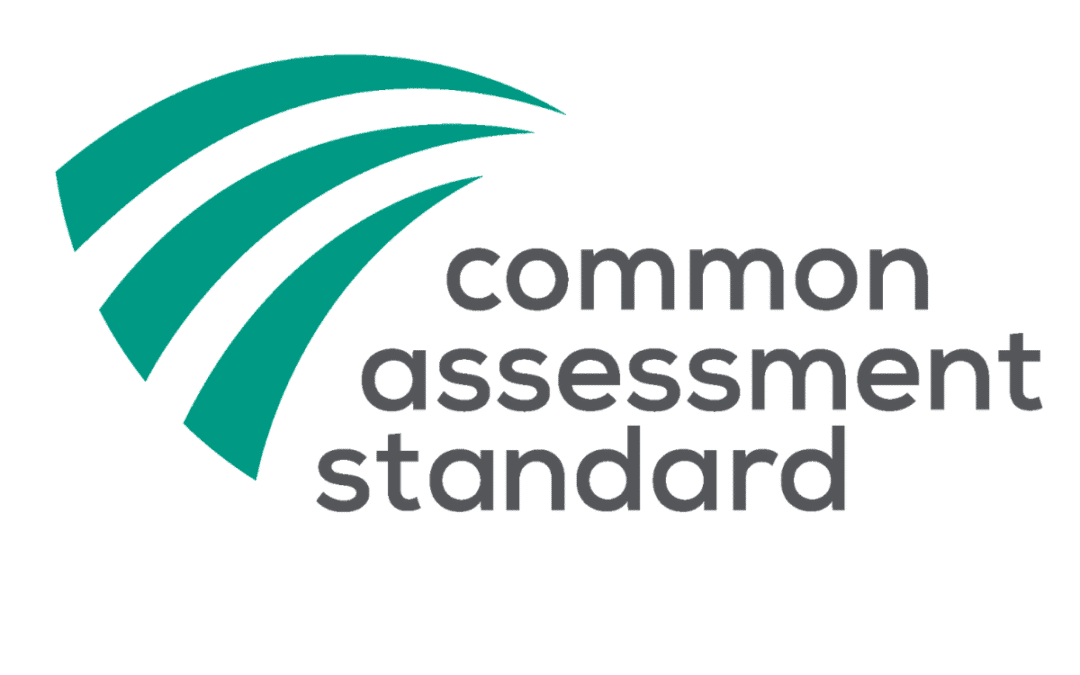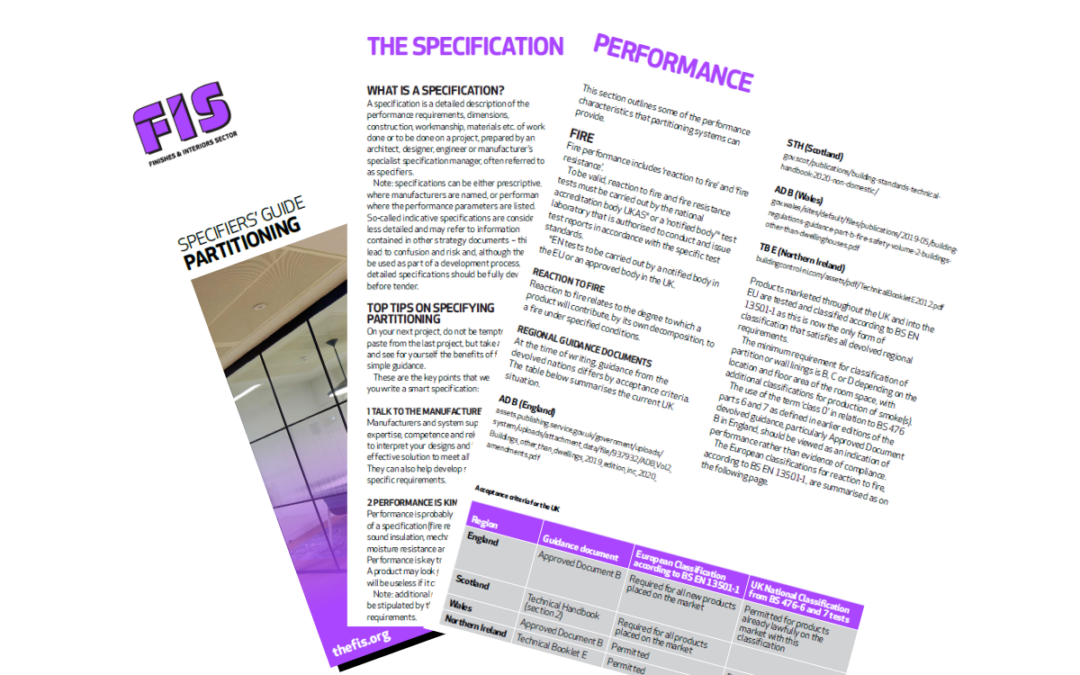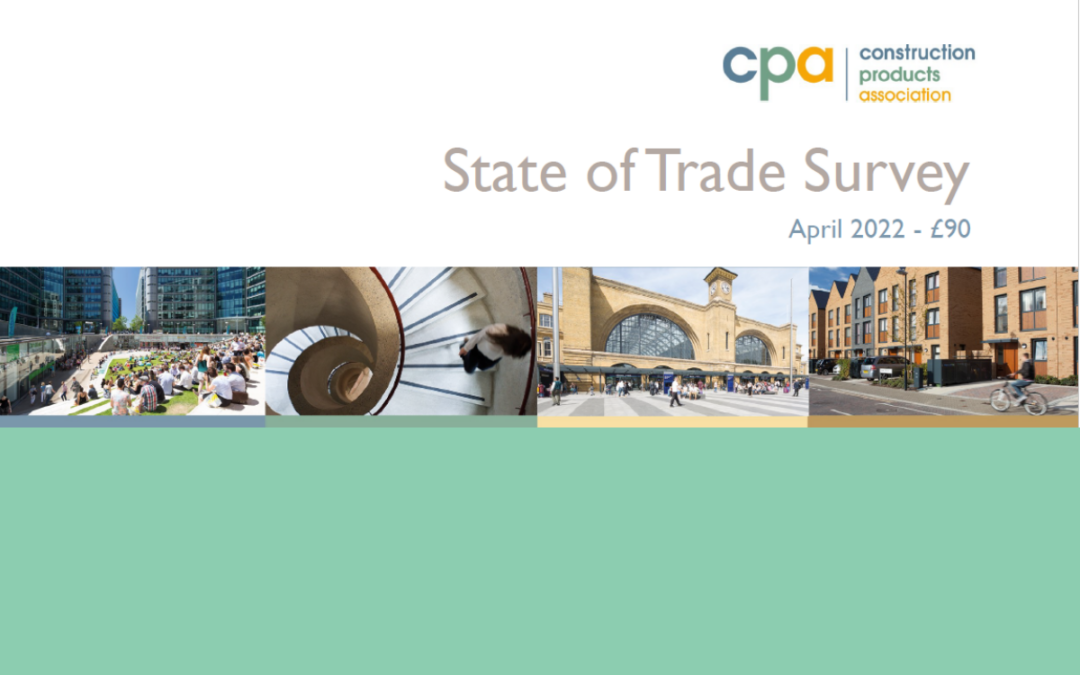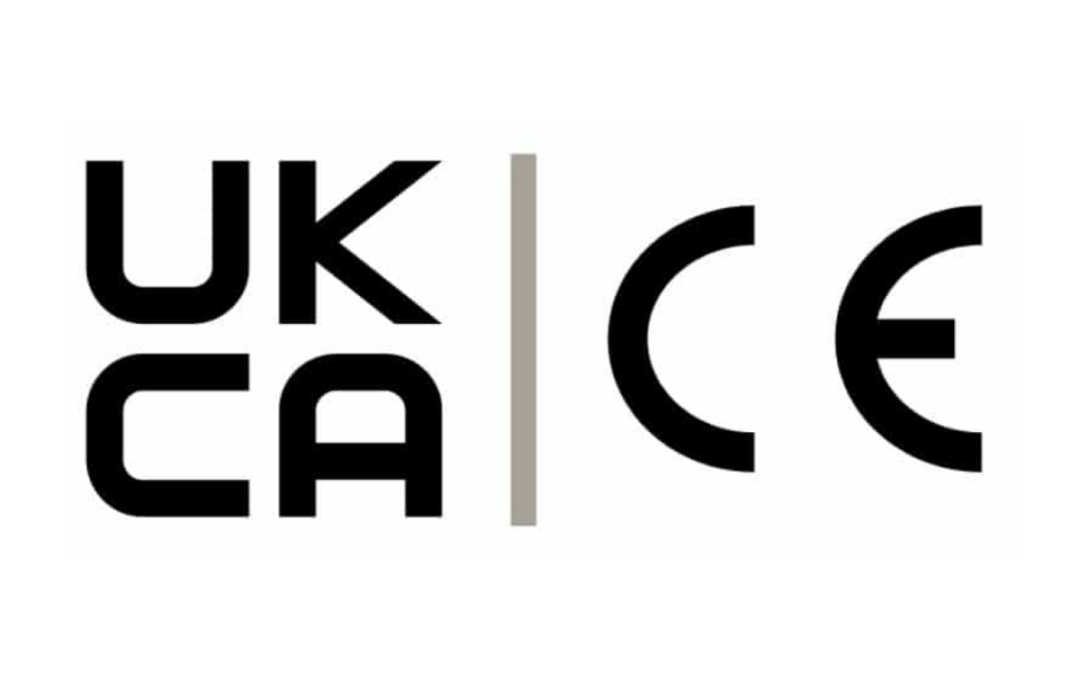
by Clair Mooney | May 12, 2022 | Main News Feed
Due to the unprecedented situation in Ukraine, which has led to a growing list of sanctions against Russia and Belarus, Build UK will be adding a new question to the Common Assessment Standard to enable the construction supply chain to demonstrate that it is not dealing with any companies or individuals subject to the UK Sanctions List. Version 3.1 will be published on 1 July and suppliers will be required to answer the new question when they next go through the certification process for the Common Assessment Standard.
We are continuing to roll out the Common Assessment Standard across the industry and our new infographic shows how it is improving efficiency and reducing cost in the pre‐qualification (PQ) process.

by Clair Mooney | May 12, 2022 | Main News Feed, Material Shortages
Statement from John Newcomb, CEO of the Builders Merchants Federation and Peter Caplehorn, CEO of the Construction Products Association, co-chairs of the Construction Leadership Council’s Product Availability working group
With the Product Availability Group having met only three weeks ago, there has been little change in respect of overall product supply since our last report, although the conflict in Ukraine is likely to affect some timber supplies later in the year. There is a good supply of most products and materials but, as previously reported, ongoing challenges continue to affect bricks, aircrete blocks, concrete products, PIR insulation products and gas boilers all of which are on long lead times.
Most wood products, including structural timber, are fully stocked. While structural softwood will remain fully available, the availability of some other product groups, whose use is concentrated in the joinery, shopfitting and finishing sectors rather than housing, is less certain given their greater reliance on raw material supplies from Russia and Belarus. The most critical is Birch plywood, which will become increasing scarce as summer progresses as outside of Russia there is only limited production from Europe, principally Finland. If the UK market is offered Birch Plywood for later in the year from the Far East, it will be based on Russian Birch logs and will be illegal to import.
Although Siberian Larch cladding will disappear from the market eventually, there are plenty of alternative cladding sources. Similarly, there are alternatives to Russian redwood and whitewood used principally in joinery and shopfitting, although these are generally more expensive.
Some PAG members reported initial signs of a slowing market. These reports are corroborated by recent published data from Glenigan, pointing to a slowdown in starts on site during the three months to April 2022. These data points suggest that inflationary pressures are starting to influence client decisions in some sectors, continuing the trend seen with softening retail sales over the last few months.
Most regions are still reporting strong demand on the trade side, particularly from larger housebuilders and for infrastructure projects including road building. SME contractors, however, are concerned that local authorities may delay regeneration projects until they can achieve more price certainty through the procurement process. We have also heard of delayed start dates for specialist trades at the end of the product building cycle, that may indicate projects continuing at a slower pace, which may impact both productivity and cash flow.
Price inflation remains a critical issue. We have previously reported the impact of rising energy, fuel and raw material costs on product price, and the latest data published by BEIS shows that annual material price inflation increased to over 24% in March for a basket of materials. With further restrictions on Russian gas and oil imports across Europe we expect that energy price movements will continue to be unpredictable. Some merchants and producers have also reported impacts on the availability of products caused by the outbreak of Covid in China and the restrictions imposed in response to this, which is affecting manufacturing and shipping from Shanghai. Wage inflation is a further concern within the supply chain, with pay rises necessary to secure labour.
Those pay raises have helped to somewhat ameliorate the shortage of HGV drivers, with reports of a record number of HGV drivers taking their tests and estimates that the driver shortfall has reduced from 100,000 at its peak to 65,000.
Despite this, the high costs and risks around haulage and shipping persist; we note reports that some European lorry manufacturers are not taking orders either because backlogs were problematic or pricing of input materials for new vehicles was proving too uncertain. This may put greater pressure on companies to maximise the efficiency of their fleet and keep vehicles for longer than anticipated. Construction product manufacturers and distributors are amongst the largest users of the UK’s road network.
In regards to global shipping, the price of moving a container from the Far East to Europe has dropped as much as 25% from its high at the start of the year, but many forecasters believe that the elevated costs and volatile delivery schedules caused by the container crisis will nonetheless carry on to mid-2023.
The conflict in Ukraine continues to affect certain product areas, as detailed in our last two reports (21 April and 28 March). We are undertaking a horizon scanning exercise to determine the likely extent of disruption particularly in relation to clay, ceramics, electrical products, and raw materials for steel and other production, as well as impact on energy costs.

by Clair Mooney | May 12, 2022 | Main News Feed
The Covid-related relaxation to the rules on claiming expenses for working from home has now been abolished. What this means is that if your employees *can* work from home if they choose but you have not *required* them to work from home, they can no longer claim home office expenses (they should check their 2022-23 notice of coding).
There is a clear statement from HMRC that “You cannot claim tax relief if you choose to work from home” which you can find here and there is a “check your status” tool employees can complete for themselves here.
May is a busy month of deadlines which members are encouraged to factor into their planning.
- 19 May If you are not paying electronically, this is the deadline for PAYE/NICs/CIS/Student Loan for the month ended 5/5 and for CIS returns. These payments need to clear HMRC’s bank account by 22 May.
- 31 May deadline for employees to have received P60s from their employers.
- 31 May Companies House should have received 31/8/2021 private company accounts and 31/11/2021 accounts for plcs.
- 31 May CT self-assessment returns for companies with accounting periods to 31 May 2021.
This issue of Newsline, exclusively available to FIS members, also includes as update on when a non-construction business can be “deemed” to be within CIS, avoidance schemes and National Insurance Contributions. Read the latest issue here.

by Clair Mooney | May 5, 2022 | Technical
FIS has launched a technical guidance note, Guarding with frameless glass partitioning to help specifiers, designers, manufacturers and specialist contractors fully understand the unique challenges of utilising full height frameless glazed partitions as a barrier.
The new FIS technical note was produced by the FIS on behalf of its members and peer reviewed by the wider community in response to ongoing feedback on the specific overlap between this product category and it’s intended use which is not well described or prescribed by standards or regulations. The document also gives examples of how to harmonise the approach to performance across devolved nations where the guidance that exists can vary.
Commenting on the need for guidance Peter Long of Optima Systems said:
“We need to be advocating the same degree of risk management in guarding as we do with fire. Both areas of construction are protecting risks to life, so both should have the same levels of attention to safe design.”
This supports the need to consider this product to be a clear example of a safety critical product.
Referenced and associated FIS publications:
The unintentional designer
Spontaneous breakages of toughened glass
FIS acoustic verification scheme
Best practice guide for installing partitions
These guides work well when they are included in proposals and project plans to demonstrate how to best approach a project. They are also good differentiators when someone is in competition with non-members, and are an excellent introduction to new members of the team and any trainees and apprentices.
The guidance note is freely accessible to FIS members and to specifiers on request. Visit the Technical Guidance section on the webiste at https://www.thefis.org/knowledge-hub/technical/fis-technical-notes-industry-alerts/

by Clair Mooney | May 4, 2022 | Main News Feed
In its latest quarterly forecast, the Construction Products Association (CPA) sees a dramatic slowing in growth, with uncertainty ahead as global issues start to affect the UK market.
In previous years, the predicted 2.8% growth in construction output anticipated by the CPA team would be cause for celebration. However, while a robust figure, this is a sharp revision down from the 4.3% growth forecast just three months ago.
Demand remains strong across the industry in Q2, and the current project pipeline suggests that this will support activity levels until at least 2022 Q3. The downward revision to the growth forecast stems from concern around a host of price pressures arising from both local and global issues.
Prior to the conflict in Ukraine, UK construction was already facing labour and product availability issues and the impact of reverse charge VAT and IR35. Rising energy costs were driving near-record price increases in construction products and the continued conflict is exacerbating this issue.
The impact of these pressures, and of more general rising costs, on demand will vary considerably by sector. Across the board the picture is one of positive market conditions in the short term with anticipation of tougher times ahead.
In private housing repair, maintenance and improvement, the stellar performer post the initial Covid-19 lockdowns, SMEs report that demand remains high, but this is the sector arguably most exposed to current price inflation, falls in consumer confidence and pressures on household incomes. Overall, output is expected to fall by 3% in 2022 and 4% next year from current all-time highs.
Private housing, the largest construction sector, remains strong, with housebuilders reporting resilient demand. Longer term, there must be questions over consumer confidence but output in this sector is forecast to rise by 1% in both 2022 and 2023. This contrasts with the 3% per year growth forecast three months ago.
The fastest growth is expected in the industrial sector, in which output is forecast to rise by 9.8% in 2022 and 9.3% in 2023, due to a strong pipeline of warehouse projects, resulting from a long-term shift towards online shopping.
Infrastructure, traditionally less affected by immediate economic conditions, remains positive. Large projects such as HS2, Thames Tideway and Hinkley Point C combined with the five-year spending plans in Page 2 of 3 regulated sectors such as rail, road and power generation point to a forecasted growth of 8.8% in 2022 and 4.6% in 2023.
On the supply side, the main immediate impact of the war in Ukraine for construction products will be the knock-on from rising energy prices and commodity shortages. Soaring energy costs will have to be passed on and lead to sharp rises in the cost of energy-intensive products. This will affect both imported products such as aluminium and steel and locally sourced products such as bricks and cement.
Contractors are likely to feel the pressure first, particularly those working to fixed-price contracts. For future projects, contractors will be forced to re-price, add fluctuation costs and introduce risk-sharing arrangements to deal with the uncertainty over potential cost inflation.
Noble Francis, CPA Economics Director, offered this summary of the latest figures:
“The major challenge is creeping uncertainty. The immediate picture is one of resilient demand and healthy pipelines. Longer term, the current inflationary pressures, if sustained, will have an increasingly depressing impact, while the continuation, or potential escalation, of conflict in Europe presents an existential risk.
“Specialist sub-contractors are feeling the effects first, particularly those working to fixed-price contracts. For future projects, contractors will be forced to re-price, add fluctuation clauses and introduce risk[1]sharing arrangement to deal with the uncertainty over potential cost inflation.”

by Clair Mooney | May 3, 2022 | Main News Feed
The Construction Industry Collective Voice (CICV) has reassured clients that ongoing price rises for projects are caused by global events not “profiteering” – and says any increases only reflect the spiralling costs that are affecting the whole construction industry.
Clients have voiced concerns at the increasing costs of construction work, but the body insists this is due only to ongoing global events sparking a rise in fuel costs and shortages of raw materials and labour.
Iain McIlwee, FIS Chief Executive said:
“The war in Ukraine, energy price hikes, impact of Brexit and fallout from COVID-19 have all created a ‘perfect storm’ just as there is a surge in demand, with price increases being imposed on the industry as a result.
Construction professionals are increasingly being forced to shoulder these ongoing rises, particularly when it comes materials, and are having no option but to pass these increases on to clients. But it is not profiteering – it is a necessity for these businesses to survive.”
The CICV’s Post-Brexit & Trade sub-group this week discussed the higher costs for raw materials, energy, labour and transport being faced by construction businesses of all sizes in Scotland, with particular focus on inflationary pressures for SMEs caused by external factors.
Iain added:
“This is a really challenging time for all in the construction supply chain with costs rising, often at short notice. The critical thing now is that we work together as a supply chain.
Too often in construction we have contracted down all risks, but we are now in a position where fixed prices could undermine the resilience of contractors or suppliers and we need to adopt a more collaborative approach and consider how fluctuations clauses can be deployed and any risks fairly shared so as not to undermine the quality or viability of a project or businesses.”
The CICV says as well as the negative impact of political, military and health issues, the withdrawal of red diesel in April has also led to higher costs for construction firms.
Chris Cassley, Policy Manager at CICV member the Construction Plant-hire Association (CPA), said:
“The UK Government’s environmental strategy with the removal of red diesel for construction plant has undoubtedly contributed to the current financial impact on industry, and despite representations to government departments, has proceeded regardless.
“The rise in energy and material prices, together with supply chain pressures and higher inflationary figures, has led to a tipping-balance for suppliers and customers alike, and in many instances resulted in necessary price increases. These increases are very likely to be passed back up to the client and for government projects, it will be the taxpayer who will ultimately have to pay.”
Another warning came from Andrew Richards, Strategic Director of Safedem and a member of the Construction Scotland Industry Leadership Group, (representing SMEs and the supply chain) which is working in tandem with CICV to support the industry. Mr Richards said:
“The knock-on effects caused by the global events of the past two years looks like they will continue for the immediate future, so clients should consider fluctuations and rises in construction costs as part of ‘the new normal’ and shouldn’t expect prices to fall any time soon.
“Construction professionals are equally concerned about the uncertainty that surrounds the marketplace and are only passing on cost increases through necessity, not greed.”
The Post-Brexit & Trade panel is one of 12 sub-groups run by the CICV, covering a range of issues ranging from health and safety and skills to the supply chain and project bank accounts.
The collective was rebranded from the Construction Industry Coronavirus (CICV) Forum at the start of 2022 to reflect its widened remit, which now covers all areas of construction.
Since its creation in March 2020, the CICV has drawn on the collective expertise of its members to maintain a steady supply of information and practical advice to the sector as well as carrying out surveys, hosting webinars and making appeals to government ministers.

by Clair Mooney | May 3, 2022 | Skills
Somewhat in the shadow of the Building Safety Bill, new laws were also passed on Thursday through the Skills and Post-16 Education Act that will help transform the skills and training landscape and level up opportunities across the country.
The Skills and Post-16 Education Act is to level up and drive economic growth across England, making Green skills and careers advice in schools a priority. The Institute for Apprenticeships and Technical Education (IfATE) have been tasked to create a unified skills system which is simpler to understand and employers and learners can really trust.
While much attention has been paid to level 3 qualifications and careers advice, the act gives the secretary of state a host of new powers over the FE and skills sector. For example, the secretary of state now has legal powers to designate and remove designation of employer representative bodies (ERBs) responsible for developing local skills improvement plans (LSIPs). They also have powers to introduce “statutory guidance” to tell ERBs who they should consult with and what should go in to their LSIPs.
The lifelong loan entitlement now also has some statutory underpinning. The flagship policy to provide loans with four years of post-18 education for modular and full qualifications at levels 4 to 6 is set to come on stream in 2025 and is currently out for public consultation.
Another of the secretary of state’s new powers is to introduce an official list of approved post-16 training providers along with new conditions for registration and restricting access to funding to providers on that list.
The act introduces new duties on college governing bodies to review and publish how their education and training offer is meeting local skills needs. The secretary of state gains new powers to use the intervention system where providers are failing in this duty.
The Institute for IfATE gets powers to approve and withdraw approval for technical qualifications under the act.
Skills to support the growing green economy will be prioritised to create a workforce for jobs now and in the future, and schools will be required to make sure all children get to meet people that provide technical education routes such as apprenticeships, T Levels or Traineeships, opening their eyes to a wide range of careers.
The legislation will help economic recovery and growth by making it easier for people to train to get the skills they need to secure well-paid jobs in industries with skills gaps, such as construction, health and social care, engineering, digital, clean energy and manufacturing. It will also give more people the opportunity to get jobs in their local areas, by requiring employers and colleges to work together to identify the skills needed within communities.
The Act underpins the government’s transformation of post-16 education and skills as set out in the Skills for Jobs White Paper and will help level up and drive growth across the whole country. Minister for Skills Alex Burghart said, “The Skills and Post-16 Education Act will transform the skills, training and post-16 education landscape and level up opportunities across the country. This legislation will make sure everyone can gain the skills they need to progress into a rewarding job, and businesses have access to a pipeline of talented, qualified employees for their workforces, boosting productivity.”
Jennifer Coupland, chief executive of IfATE, which leads with implementing the government’s employer-led technical education reforms, said,
“Following passage of this landmark legislation, we can look forward to creating a unified skills system which is simpler to understand and employers and learners can really trust. IfATE has empowered employers to drive up the quality of apprenticeships and roll out exciting new T Levels. The time is now right to extend the employer-led reforms across technical education.”
Key measures introduced by the Act include:
- supporting the creation of a unified skills system that builds from quality gains achieved with Apprenticeships and T Levels by ensuring all technical qualifications match up to employers’ high standards;
- embedding employers in the heart of the skills system by placing a legal requirement on colleges and other providers to work with employers to develop skills plans, so that the training on offer meets the needs of local areas, and people no longer have to leave their hometowns to find great jobs;
- making sure all pupils meet providers of technical education so that they understand the wide range of career routes and training available to them, such as Apprenticeships, T Levels or Traineeships, not just the traditional academic options;
- prioritising green skills so the training on offer across the country meets the needs of the growing green economy and helps gets more people into jobs;
- supporting the transformation of the current student loans system so from 2025 learners an access a flexible loan for higher-level education and training at university or college, useable at any point in their lives;
- introducing new powers to intervene when colleges are failing to deliver good outcomes for the communities they serve; and
- making it a criminal offence to provide, arrange or advertise essay mill services for financial gain to students taking a post-16 qualification at institutions in England including colleges, universities and sixth forms.
Employers in eight trailblazer areas across the country have already been working with local training providers to create skills plans that align to what local communities need. These plans are now being rolled out across the country, opening up more opportunities for people to gain the skills they and businesses need to succeed. The new measures build on the work already under way to boost skills and get more people into better jobs, including working with employers to create more Apprenticeship opportunities, establishing a network of Institutes of Technology and rolling out new T Levels.
George Swann FIS Skills and Training Lead said,
“FIS is listed on the directory od professional and employer lead bodies with IfATE to monitor the quality of apprenticeship End Point Assessment for the sector. This puts FIS employers front of house for the initiatives published through the Royal Assent of the Skills and Post-16 Education Act. We will continue to work with IfATE and provide information advice and guidance to FIS members on all things skills”

by Clair Mooney | May 3, 2022 | Technical
FIS has launched a Specifiers’ Guide to Partitioning to help specification writers fully understand the criteria when writing a specification for partitioning, including moveable walls and pods.
The Specifiers’ Guide to Partitioning was produced by the FIS Partitioning and Pods Working Group which comprises representation from manufacturers, designers and contractors working in the sector. Pulling together decades of experience, this guide is the fourth in the series of guides and is designed to help specifiers and designers understand the questions that should be addressed before the specification can be produced and then how the specification should be structured, and which standards referenced.
Commenting on the guide, Iain McIlwee, Chief Executive of FIS said:
“Specifying partitioning seems, on the face of it, simple enough: consider the look, performance and cost, and there it is. If only it were that simple there would not be cases where inappropriate glass was used in guarding or the partition wasn’t performing acoustically because the flanking paths hadn’t been addressed”.
The guide explains the vast range of product options and how careful specification can help with relocatability in the building as well as enjoying enhanced tax benefits as well as reference material to regulations for safety, fire performance and standards.
“A well written specification not only ensures the installation meets the client’s requirements, but it also means the specifier’s requirements are less open to interpretation, which is key for the whole supply chain if they are going to deliver the quality and detail first time, on time,” added Iain McIlwee.
The guide sits alongside other FIS best practice guides that relate to partitioning:
FIS Acoustic Verification Scheme – FIS (thefis.org)
Best practice guide for installing Partitioning
Servicing operable walls
These guides work well when they are included in proposals and project plans to demonstrate how to best approach a project. They are also good differentiators when someone is in competition with non-members, and are an excellent introduction to new members of the team and any trainees and apprentices.
FIS plans to have CPD material to accompany the guide later in the year.
You can download the Specifiers’ Guide to Partitioning at www.thefis.org/membership-hub/publications/specifiers-guides/partitioning/
For further information or for any questions please contact the FIS at info@thefis.org or call 0121 707 0077.

by Clair Mooney | Apr 29, 2022 | Building Safety Act
The Bill received Royal Assent on 28 April 2022. FIS will continue looking at how the Bill will impact our community and will keep members up-to-date with developments.
This is without doubt the biggest shake-up of Building Regulations since they were introduced in 1666, placing new demands on competence in the workforce, product selection and documenting process (e.g. digital record keeping) on all in the supply chain.
FIS is committed to supporting our members with compliance and ensuring the Bill supports a better safety and a more collaborative approach to procurement.

by Clair Mooney | Apr 28, 2022 | Market data
Construction product manufacturers reported a positive start to 2022, recording a seventh straight quarter of growth in sales in Q1, according to the Construction Products Association’s State of Trade Survey. Broad cost pressures remained across the sector but are yet to dent manufacturers’ expectations for growth in the year ahead.
Cost inflation persisted across the supply chain and three storms that brought heavy rainfall across the country between 16 to 21 February affected construction projects on site. 43% of heavy side firms and half of light side firms reported a quarterly rise in sales in Q1, up from balances of 31% and 22% respectively, in Q4. While demand levels in private housing and private housing RM&I have been sustained by the ‘race for space’ and major infrastructure projects continue to make progress, commercial has also gained from fit-out, refurbishments and changes in use activity. Despite economic headwinds, 80% of heavy side and 77% of light side firms anticipated a rise in sales over the next 12 months, the joint-highest balances in nearly eight and seven years respectively.
As global supply chain issues and inflationary pressures were further exacerbated by Russia’s invasion of Ukraine on 24 February, all firms cited annual rises in costs. Upward pressure came from a range of inputs, notably energy and raw materials with all firms reporting increases in the cost of both. With cost pressures set to continue in the next 12 months, investment intentions balances across most categories on the heavy side came in lower than Q4.

by Clair Mooney | Apr 28, 2022 | Skills
The deadline for applying for the incentive payment has been extended until 20 May 2022.
Employers who hired a new apprentice between 01 October 2021 and 31 January 2022 who had an apprenticeship start date between 01 October 2021 and 31 March 2022, could be eligible for the £3,000 incentive payment for hiring a new apprentice. To receive the payment, employers must submit an application for each eligible apprentice using their apprenticeship service account.
For more support with employer applications please see:
- how to apply guide including when to apply, steps to take before applying, how to apply and what happens after applying.
- guidance page including eligibility, how the payment can be used and when payments are made.
- how to apply video including a walkthrough of the steps to take within the Apprenticeship service: https://youtu.be/HQJjjAzXO7k
When applying for the incentive payment for hiring a new apprentice, employers must make sure they have:
- added the correct PAYE schemes, that they use to pay their apprentices, to their apprenticeship service account, in line with the service terms and conditions
- only applied for eligible apprentices and they have documentation which can validate their claim, as listed in the apprenticeship funding rules
- checked their training provider has the correct National Insurance Number for each of their apprentices, and that they have included this in their funding submissions
If the information is incorrect, this will delay incentive payments.
If you need any further information please call FIS on 0121 707 0077 or email info@thefis.org

by Clair Mooney | Apr 28, 2022 | Main News Feed
FIS issued a reminder this week that new product marking requirements are still set to be introduced from 1st January 2023. From this date it will no longer be legal, except in Northern Ireland, to place CE marked products onto the UK market. Products previously covered by a Harmonized Standard (e.g. ceiling systems) will be required to be UKCA marked if they are placed on the market from 1 January 2023.
Beyond this period UK compliant Declarations of Performance will be required to refer to Designated Standards and may need to be retested by a UK Approved Body.
Distributors and manufacturers of products and contractors purchasing products are reminded to check that their supply chain have this in hand as soon as possible to ensure that there are no interruptions to supply in the New Year. Remember that that this may impact components that are bought seperately and integrated within your products such as glass, electric motors or hardware.
FIS is aware that there are major bottlenecks at UK test houses and there are concerns that essential testing may not be completed before the deadline.
If for any reason you or your suppliers experience problems, please let us know as soon as possible. FIS is feeding concerns into Government directly and via the CPA and continuing to press for an extension to this deadline, so that we can let Government know that this may result in delays to projects.
More information on the UKCA Marking is available here.
To visit the FIS Brexit Toolkit Click Here

by Clair Mooney | Apr 28, 2022 | Skills
The Construction Leadership Council has published an update to its sector-wide skills plan for construction and the built environment. This year CLC is focussing its efforts around four strategic priorities with a spotlight on creating the right culture change and broadening diversity.
1. Improving access to opportunities for all
2. Boosting all routes into industry
3. Ongoing collaboration to develop competence frameworks
4. Preparing for the future of construction
FIS Skills and Training Lead George Swann, said:
The Construction Leadership Councils updated Skills Plan is encouraging as it’s very clearly aligned to the current work of FIS. If you attended one of the regional events you will know the focus is on recruitment, retention, social responsibility, competence and funding. We know the labour market is tight and the sectors employers are in competition with other construction sectors and other industries to recruit and retain a talented workforce, to succeed there must be a combined and consistent approach, the finishes and interiors sector employers must continue to work together.
To realise the strategy CLC are asking construction industry employers to:
- Employ and support an individual to complete an Apprenticeship
- Transfer your Apprenticeship Levy to another construction business
- Embrace T-Levels and offer an industry placement
- Offer a Traineeship work experience placement
- Provide a Work Experience or Taster opportunity
- Share your skills and teach in further education
- Post vacancies on Talent View Construction
- Support local Skills Bootcamps and Training Hubs
- Adopt the Fairness, Inclusion and Respect (FIR) Programme
- Become a Construction STEM Ambassador
George added:
Information, advice and guidance is available on all of these points from FIS, either online at www.thefis.org or if you would like to talk through options for recruitment, retention, social responsibility, competence and funding telephone 0121 707 0077 or email info@thefis.org
The updated skills plan will ensure the construction sector can achieve joint goals by setting out clear commitments for industry, government, and employers.
Industry can get behind the plan by supporting the initiatives, including Apprenticeships, T-Levels, Traineeships, Skills Bootcamps and Talent View Construction.

by Clair Mooney | Apr 28, 2022 | Building Safety Act
In light of recent Parliamentary discussions on the use of retentions in construction, Build UK, of which FIS is a member, along with other members of the CLC met with Construction Minister Lee Rowley to discuss how the Government and industry can work together on this issue, building on the work previously undertaken by Build UK through its Roadmap to Zero Retentions.
With any legislation on retentions unlikely during this Parliament, Build UK will be reviewing the milestones in its roadmap over the coming months, including the Minimum Standards on Retentions and the table of public sector retention policies.
Dame Judith Hackitt has also made the case for removing retentions, stating that they are ‘totally inconsistent with collaborative procurement’. Speaking earlier this month at the launch of the Guidance on Collaborative Procurement for Design and Construction to Support Building Safety, she outlined how “suppliers assume they will never receive their retention payments…so therefore from the outset of projects with retentions involved they are looking for other ways to cut costs, cut corners and save money in whatever way possible”.
Read the FIS Position Paper on Retentions which FIS advocates are an archaic way to manage quality and no longer fit for purpose. They undermine a positive culture in construction and engender a lack of trust.

by Clair Mooney | Apr 28, 2022 | Main News Feed
The impact of war in Ukraine: The Government has announced new measures to support Ukraine under its free trade agreement, which include reducing all tariffs on goods imported to zero and removing all quotas. It has also strengthened sanctions against Russia, with tariffs increased by up to 35 percentage points and the list of products facing import bans expanded to include silver and wood products.
The latest statement issued by the CLC Product Availability Group confirms that ‘the impact of the war in Ukraine is only beginning to be felt by UK construction’. Sanctions against Russia have led to reports of nickel prices doubling, which affects the price of stainless steel, whilst rising energy and raw material costs are continuing to drive up prices, particularly for energy‐intensive products like steel, cement and glass.

by Clair Mooney | Apr 28, 2022 | Building Safety Act
Cladding remediation update
The latest figures published by DLUHC show that, of the 483 high‐rise residential buildings identified to have unsafe ACM cladding:
- Remediation work has been fully completed on 316 (65%)
- Work has been completed and is awaiting Building Control sign off on a further 56 (12%)
- Work has started on 80 (17%)
- Of the remaining 31 (6%), 16 have a remediation plan in place, 14 are intending to remediate and one doesn’t have a clear remediation plan.
The Building Safety Fund for the remediation of unsafe non‐ACM cladding systems received 2,827 registrations, 30% of which have now been invited to apply for funding, with 6% in the process of having their eligibility assessed.
Funding for cladding remediation
Michael Gove, Secretary of State for Levelling Up, Housing and Communities, has reached an agreement with developers that will see them commit a minimum of £2 billion to fix fire‐safety issues with their own buildings. To date, 36 of the UK’s largest homebuilders have pledged to fix all buildings over 11 metres that they have played a role in developing over the last 30 years, and Gove has urged other developers to sign up, stating that those who refuse to do so could be prevented from building and selling new homes in the future. Alongside this, the Government has confirmed plans to extend the Building Safety Levy to be paid by developers on all new residential buildings in England, which is expected to raise up to £3 billion over the next decade to support remediation works.
Gove has also written to the product manufacturing sector, expressing his disappointment at its failure to make a public funding commitment and reiterating that the Government will do ‘whatever it takes’ to make sure they are held to account through the powers established in the Building Safety Bill.
RICS updates EWS1 Forms
RICS has updated its EWS1 form to confirm that all assessments of external walls should now be carried out in accordance with PAS 9980. Whilst the Government has stated that buildings below 18 metres do not require an ESW1 form to be completed, RICS guidance continues to advise lenders to ask for EWS1 forms on buildings of six storeys or fewer where ACM, MCM or HPL panels are present.
For a summary of the Building Safety Act 2022 click here

by Clair Mooney | Apr 26, 2022 | Sustainability
The Competition and Markets Authority has produced its Green Claims Code to help businesses understand how to communicate their green credentials while reducing the risk of misleading consumers. The Code focuses on 6 principles that are based on existing consumer law, these are:
- claims must be truthful and accurate
- claims must be clear and unambiguous
- claims must not omit or hide important relevant information
- comparisons must be fair and meaningful
- claims must consider the full life cycle of the product or service
- claims must be substantiated
These bear similarity to our sector’s Code for Construction Product Information which emphasizes the need for clear and robust statements about the performance and impact of a product. This applies to green claims just as much as to other performance claims. This is an area we may need to visit in more depth to ensure green claims in our sector are robust. If you are making a claim about the environmental impact of a product then it should be on the basis of the standard EN 15804 to produce an Environmental Product Declaration (EPD). This considers impact through the whole lifecycle of a product.

by Clair Mooney | Apr 26, 2022 | Main News Feed
FIS is continuing its support of the 2022 Inspiring Change Awards, that were introduced in 2016 to recognise companies working in the construction, infrastructure, and built environment sectors.
There is no charge to enter, and attendance at the Conference & Awards Ceremony is also free of charge.
Creating open and inclusive workplace cultures in which everyone feels valued, and respects colleagues, is recognised as key to business success. Becoming a finalist or winner in the Inspiring Change Awards is a great way to raise your company profile as they highlight organisations that understand the broad scope of diversity, nurture a culture of Fairness, Inclusion and Respect, and have taken active steps to promote equality of opportunity in the workplace and wider community.
The Inspiring Change Awards are part of the FIR Programme, and are part-funded by CITB.
In 2022, Awards will be presented in the following categories:
- Inspiring Change in the Workplace
- Inspiring Change in the Community
- Inspiring Change in Education
- Inspiring Change: Project Award
- Inspiring Change: SME Award
- Inspiring Change: FIR Inspiration
The deadline for entries is the close of business on Friday 13 May 2022.
This year the Awards Ceremony will be incorporated into a one-day Inspiring Change Conference, which will be held on 6 July 2022 at No. 11 Cavendish Square, London W1G 0AN. The conference will bring together a range of inspirational speakers from diverse backgrounds, including industry stakeholders and representatives from a range of sectors. The Awards Ceremony, which is free to attend, is sponsored by CITB and the individual awards will be sponsored by major clients and other stakeholders.
For more information and details on how to enter, please visit www.inspiringchangeawards.com or e-mail inspiringchangeentries@ceca.co.uk

by Clair Mooney | Apr 22, 2022 | Building Safety Act
The Construction Products Association has formally responded to Secretary of State Michael Gove regarding the building safety and cladding remediations.
- Secretary of State addresses CPA in open letter, thanking the CPA and its members for support of agreeing that leaseholders should not face bills for remediation costs
- The Minister highlighted that he is unhappy of ‘lack of movement’ on agreements
- CPA Chief Executive expresses disappointment that no agreement has yet been reached and is open to providing further assistance where required
- The CPA outline where measures need to be put in place so that there is clear, working actions to meet a desirable outcome
On 13 April 2022, the Minister for DLUHC wrote a letter addressed to CPA Chief Executive Peter Caplehorn bring to a close current talks around the remediation of building safety and cladding. In the letter, the Minster acknowledges the work undertaken by CPA and its members and the reasons as to why the remediation works is a lot more challenging than his original letter outlined.
After several months of discussions between DLUHC and members of the construction products and housebuilders sectors Mr Caplehorn expressed his professional disappointment that an agreement has not been reached. In the letter sent today to the Minister, he has highlighted where further clarity is required from the Government over lack of details for the work required. Additionally, Mr Caplehorn has stated that many Construction Product Association members have voluntarily agreed to pay for any costs because of defects from their own funds as part of the House Builder’s Remediation programme.
Mr Caplehorn said:
“Our members do understand the urgency of finding a solution and have been working hard with us to try to find a suitable formula. We should stress however that many are troubled by the lack of detail in terms of scope and definitions for the work and the lack of support from valuers, insurers, and the mortgage sectors.”
Additionally, the CPA has politely asked the Government to refer to the recommendations from the Select Committee report, most notably these three points:
1. To establish a clearer understanding at the building level to avert further confusion and delay for leaseholders
2. Involve other sectors of the industry in the discussion because in the design, procurement, construction, and maintenance of any building there will have been a complex set of interactions leading to the final built asset.
3. The CPA have long advocated (prior to these specific discussions with DLUHC) that a wider remit of works must be considered – beyond simply cladding and insulation – to ensure that every one of the buildings in question is made fully safe for leaseholders. If this entire discussion around funding is to gain the support it requires, then both the Government and industry must be doing all they can to ensure that all building safety defects are addressed in any remediation programme.
The CPA also feel it is wrong for the Minister to characterise the position of those highlighted in his letter as making “excuses” and “not taking action”, as our members and other manufactures have been proactive in their approach to come to an amicable solution with this situation.
Finally, the CPA and the stakeholders involved are keen to learn on the proposals that Government would like to put forward as we await their response. In the meantime, we will carry on working on the reform and cultural change in the industry to benefit the homes of the future in a safer environment.

by Clair Mooney | Apr 20, 2022 | Main News Feed
The Finishes and Interiors Sector (FIS) is pleased to announce that Philip Thomas has been co-opted to its executive board.
Philip is Business Development Manager at Smith Building Systems and has worked within the partitioning, aluminium extrusion and building products field for over 20 years.
Philip’s current role as Business Development Manager for Smiths Building Systems affords him the opportunity to be involved in many aspect of the business including branding, web development, safety, technical specifications, product development, improvement and design. This wide-ranging role will bring a vast amount of industry experience and knowledge to the FIS Board.
A recently new FIS member, having joined in 2020, FIS Chief Executive Iain McIlwee said:
“An inherent strength of FIS is the engagement we get from our membership and particularly the willingness of members to step up and support our team, providing leadership and expertise via the Board. FIS only exists to try and help create the right conditions for the good companies to win, paramout to this is members scrutinising what we are doing is helping and helping us to understand what more needs to be done. Philip brings a wealth of experience and enthusiasm and are looking forward to working closely to continue to grow the FIS in every way.”
Philip said
“I feel honoured to have been asked to join the board of the FIS, It has long been considered as the go to resource when it comes to the building industry. To be working alongside so many incredible and well respected people from all parts of the industry makes me feel very proud and humbled. I am excited to be able to help continue the amazing work the FIS does especially when it comes to partitioning which will hopefully continue to benefit of the entire industry”.
For further information or for any questions please contact the FIS at info@thefis.org or call 0121-707-0077.
You can find the current Board members at https://www.thefis.org/about-us/board/























